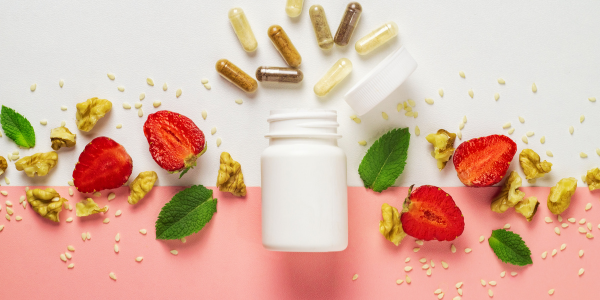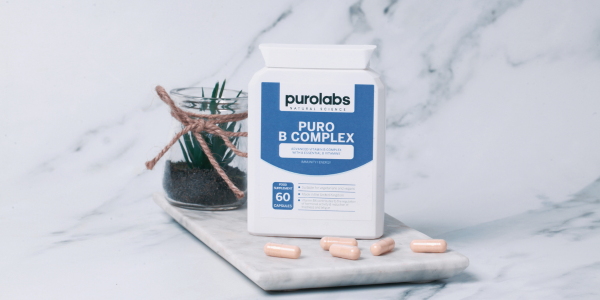In this blog article I am going to outline vitamins that are especially vital for male health.
Whilst the supplement market can be aimed towards women’s health, and in many cases, this is absolutely justified through the sadly increasing myriad of female health complaints in recent decades, we mustn’t neglect health information to support male health.
One of the many reasons we must also highlight health information targeted at men is because, as is with health in general, improved health not only impacts you, but it also impacts your loved ones. The right nutrients can boost mood, vitality, libido, and energy which all positively impact the relationships with those around you.
Whilst many nutrients are required for both male and female health, I am going to outline the nutrients that are specific to male health and are usually required in larger amounts to support health and vitality in men.
But before we do this, to provide context we must discuss the most important hormone as it pertains to men’s health...testosterone.
Testosterone: The Male Hormone
Testosterone is one of the most important sex hormones for male health, at every life stage. Whilst women require testosterone for normal hormonal function, this hormone is required in much larger amounts in men in order to support general health and wellbeing.
Many health ailments for men can be attributed to low testosterone levels, which can result from a range of diet and lifestyle factors:
- A sedentary lifestyle
- Chronic stress
- Obesity
- A low protein diet
- Nutrient deficiencies
- Chronic diseases and infections
- Pharmaceutical interventions
- Low thyroid function
- Age is also a natural factor that contributes to the decline in testosterone, with levels generally beginning to drop between 30 to 40 years of age and continue to do so by 1-3% annually1.
Testosterone has many roles in the male body, including regulating libido, producing red blood cells and sperm and contributing significantly to body mass, fat distribution and muscle mass2.
Testosterone Deficiency
Deficiency in this vital hormone will affect male health in numerous and vital ways.
The following list of symptoms are the more common signs of testosterone deficiency3:
- Fatigue and low mood
- Loss of lean body mass
- Sleep disturbances
- Body composition changes i.e. more weight around the middle
- Erectile dysfunction and low sex drive
- Loss of body and facial hair
- Bone loss
As nutrient deficiencies can be a significant contributing factor, let’s outline what nutrients need to be topped up in order to maintain male health and longevity…
Zinc
Zinc is one of the most important nutrients when it comes to sperm production, maturity, mobility and count. Zinc deficiency is associated with low testosterone levels which affects sperm quality, libido and conditions such as erectile dysfunction4,5, with one study outlining those men who received 30mg zinc daily resulted in increased levels of free testosterone.
Zinc is also a vital nutrient for protein synthesis helping men to maintain healthy lean body mass and the potent antioxidant mineral also helps reduce inflammation in the body, supporting a healthy prostate.
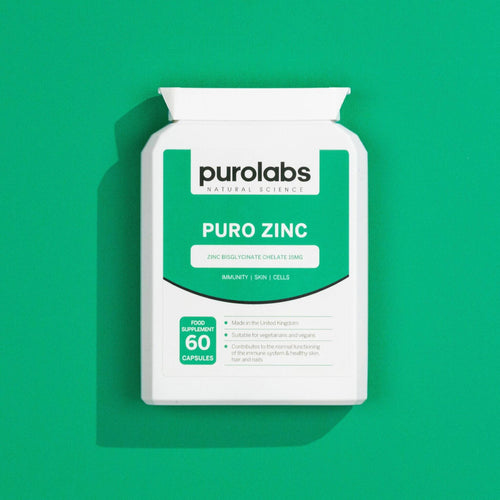
Zinc
Omega 3
Omega 3 is a nutrient that we need to obtain through diet and supplementation, as the body cannot produce it.
Men are more at risk of cardiovascular disease, as oestrogen has cardioprotective benefits. Therefore omega 3, which has been shown to help reduce symptoms associated with CVD, such as high triglycerides, high blood pressure and irregular heartbeat is an essential nutrient for male health6.
Highly absorbable rich omega 3 food sources can be found in fatty fish. An acronym to help you remember which fish is high in heart and hormone healthy omega 3 is SMASH:
Salmon
Mackerel
Anchovies
Sardines
Herring
Plant-food sources of omegas 3 foods are:
- Walnuts
- Chia seeds
- Flaxseeds
- Hempseeds
- Edamame
- Kidney beans
Whilst plant omega 3 can be ingested through diet, it is not as absorbable and easily utilised as animal sources of omega 3. Human beings also require specific enzymes to convert plant omegas to bioavailable forms for the body to utilise, and some people genetically lack the enzymes required.
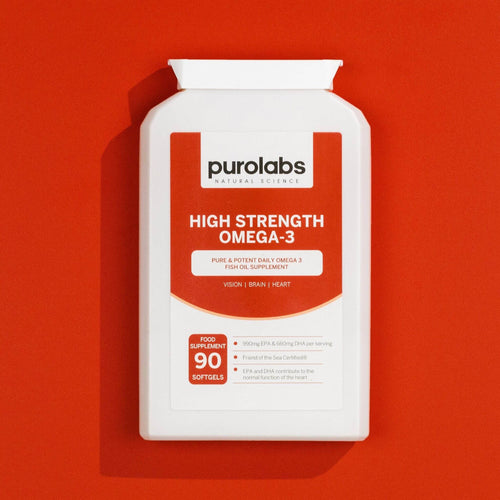
Omega-3
Vitamin D
Vitamin D is one of the most vital nutrients when it comes to hormone production. Without this essential nutrient, we would find it impossible to produce and therefore regulate hormones effectively.
Vitamin D is often thought of as a pro-hormone due to its impact on all aspects of hormone health. It is also a key component of bone health and helps contribute to bone mass density. Chronic Vitamin D deficiency is likely to result in poor bone health in both sexes and has been associated with an increase in physical ageing7.
Vitamin D rich food sources include:
- Oily fish: Salmon, Mackerel, Anchovies, Sardines, Herring
- Eggs
- Activated mushrooms
- Liver
- Red meat
Whilst vitamin D can be sourced from foods, it can be difficult to obtain adequate vitamin D from diet alone.
Vitamin D is one of the most common nutrient deficiencies, especially during the cold winter months. Therefore, supplementing with this nutrient will go a long way to helping support hormonal balance and testosterone production in men8.
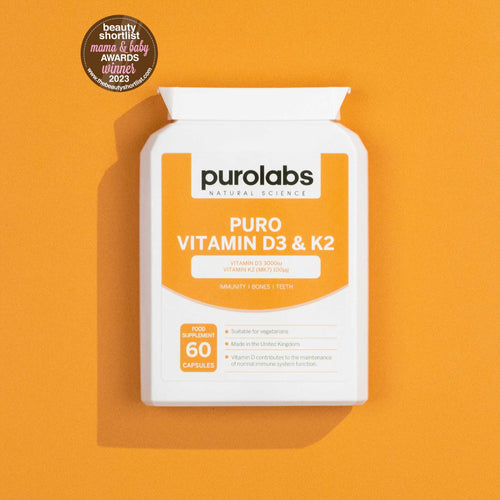
Vitamin D3 & K2
Magnesium
Magnesium is another nutrient which helps to reduce cardiovascular risk, with the Journal of Clinical nutrition associating increased magnesium intake with a lower risk for CVD9.
Magnesium also has a whole host of wonderful health benefits which is important for men’s health, including aiding healthy muscle contraction, improved sleep and helping to reduce stress.

Magnesium Citrate
Vitamin C
Vitamin C is underrated and often not spoken about when it comes to male health.
Vitamin C’s antioxidant capacities help with sperm production and motility, but it also helps with collagen production as men age.
A study, which provided vitamin C supplementation to adult men with high blood pressure found that vitamin C supplementation on average reduced systolic blood pressure by 4.9mmHg and diastolic blood pressure by 1.7mmHg10.
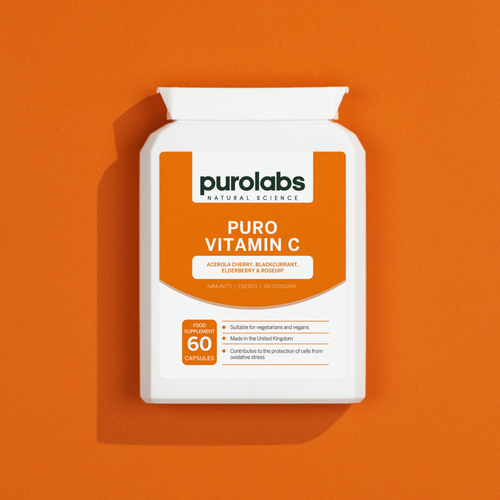
Vitamin C
The Gut and Testosterone Health
It is really important to consider gut health when it comes to testosterone health and nutrient absorption. Low testosterone levels in men have been associated with an increased risk and severity of conditions like IBS11.
A recent study showed that microbiome diversity in males with type 2 diabetes was significantly lower than in those with the same disease but had adequate testosterone levels12.
Whilst we have covered our top 5 nutrients for male health, it is important to consider, if you do experience chronic gut issues to opt for a probiotic.
If your gut-related symptoms are longstanding or interrupt daily functioning, then I do strongly recommend that you seek the help of an experienced and qualified health professional. Upping your intake of vitamins for health is important, however absorbing those nutrients in order to reap the health benefits outlined is just as vital.

 Beauty
Beauty
 Bone Health
Bone Health
 Brain Health
Brain Health
 Energy
Energy
 Eye Health
Eye Health
 Gut Health
Gut Health
 Hair
Hair
 Hormonal Health
Hormonal Health
 Heart Health
Heart Health
 Immunity
Immunity
 Joints
Joints
 Menopause
Menopause
 Pregnancy
Pregnancy
 Kids
Kids
 Sleep
Sleep
 Stress & Mood
Stress & Mood

















